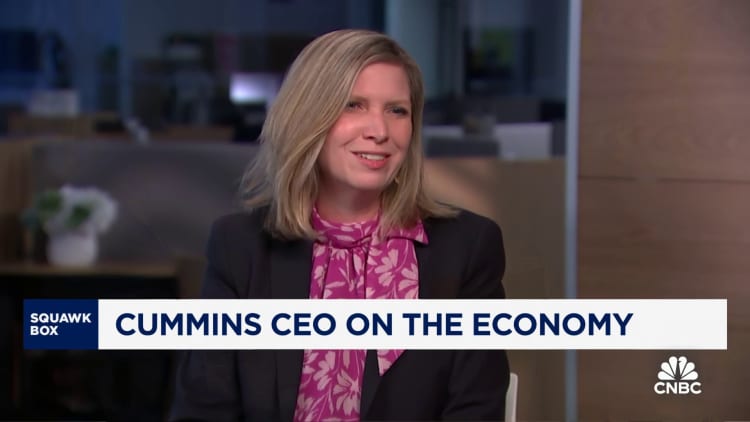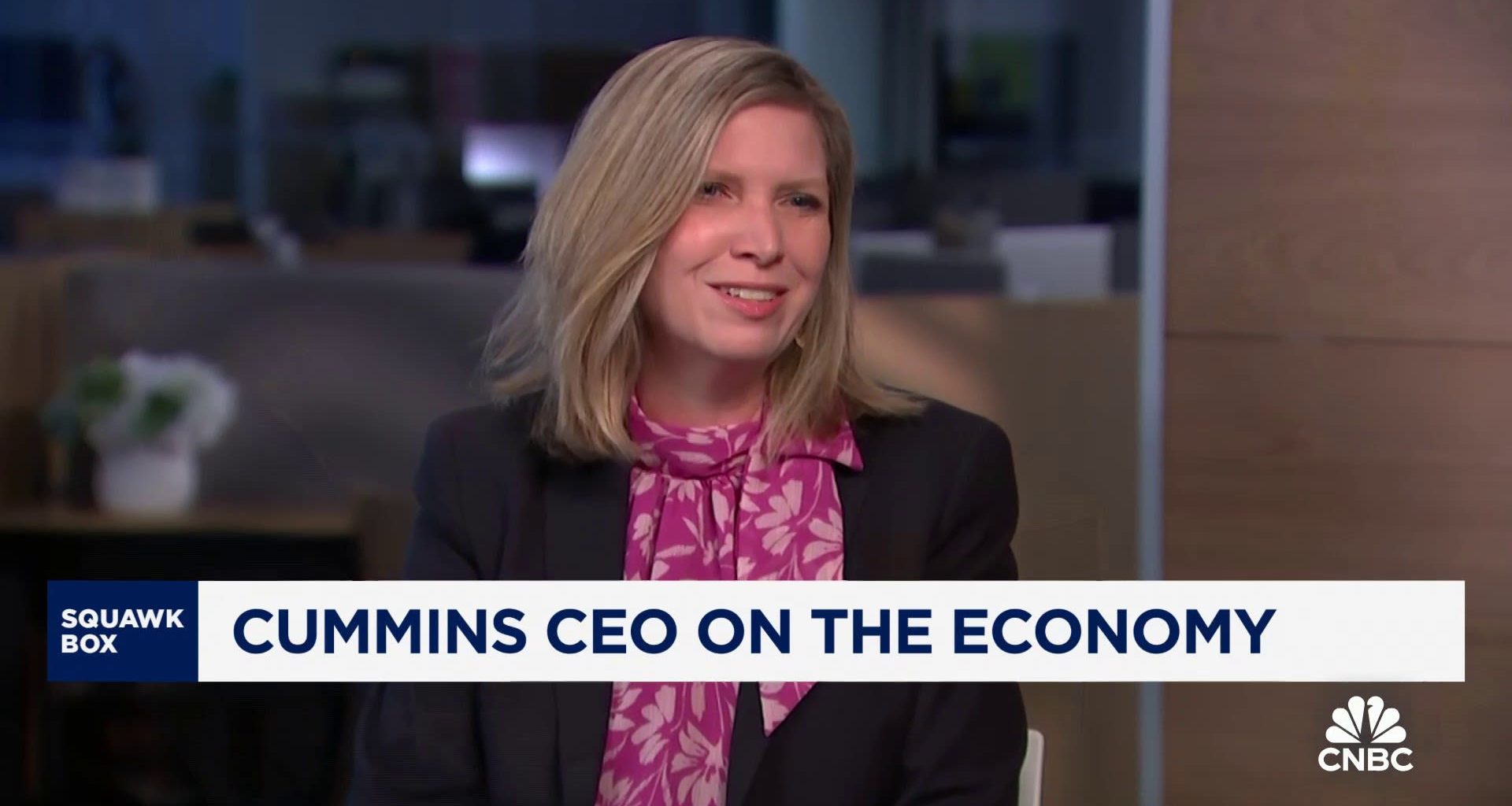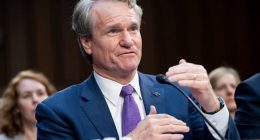As more employees seek ‘green’ perks and more companies return to pre-pandemic office work, commuting is a likely place to focus efforts to embed climate change within workplace benefits culture.
Jeff Greenberg | Universal Images Group | Getty Images
More workers in today’s labor market want to take action on climate change in some way as part of their jobs, yet many encounter a major stumbling block: lack of understanding when it comes to their employer’s own commitment to the issue. So-called green perks, also referred to as climate change benefits, could help to bridge that gap. A rising, though still marginal trend in the job market, employee enticement and compensation packages tied to climate change can help to make these abstractions clearer and more actionable in the workplace.
Environmental commitments from major companies have tended to focus on major operational efficiency targets, such as Google’s carbon-free data centers, and from the supply chain to the consumer end market, such as Apple’s carbon-neutral smartwatch. There are some companies all-in, as a brand, in fighting climate change, such as Patagonia. And at the C-suite level, it’s already a norm on the compensation side of the equation, with executive bonuses at companies, such as Apple, tied to ESG performance metrics.
But for most rank-and-file employees, benefit packages in recent decades have had essentially two main categories — health and retirement. Now there are indications that green benefit packages may become more common. One potential spearhead for the nascent movement is commuter benefits, particularly benefits that facilitate healthier, eco-friendly modes of transportation, allowing employers to facilitate and promote lifestyles that appeal to an increasingly environmentally-conscious workforce, while lowering the company’s own net carbon footprint.
Walmart, the nation’s largest employer, has been factoring the environmental impact of employees’ daily commutes into the company’s carbon footprint in an example of a shifting corporate culture, while in recent years the retailer has been promoting alternative forms of commuting that were integral to design of its headquarters in Bentonville, Arkansas.
With Walmart saying “multi-modal and alternative transportation is a big part of the future of commuting,” it has facilitated bikes as a green lifestyle perk for employees, investing in chargers for e-bikes and e-scooters, bike racks, and showers for cyclists arriving to work, while it has deliberately reduced design space allocated for parking lots.
A bicycle rack outside a Walmart Neighborhood Market location in Bentonville, Arkansas.
Bloomberg | Bloomberg | Getty Images
Walmart has a stated a goal of having 10% of its workforce biking to work in Bentonville — but the goal has been difficult to reach, and has been pushed back from 2023 to 2025 when the corporate headquarters are set for completion. Still, similar to the challenges of wider adoption of electric vehicles, infrastructure plays a major role in getting employees on bikes, and Walmart has gone all-in on this in Bentonville.
Across the 500 employers representing over 8 million workers that respond to an annual survey from management consultant WTW, the topic of green benefits is beginning to register, says Caroline Mangiardi, associate director, health & benefits at the firm. While its annual best practices survey focuses on health-care benefits, it began to include a section on climate-related benefits in 2022 and she says employer attitudes are shifting. Increasing priority is to be given to climate-related benefits in the years ahead, according to the survey. Half of employers had considered this concept a low priority over the past three years, but only a third now see climate benefits as a low priority.
Employer-funded home upgrades, EV purchase perks
The trend is not limited to the bikes for commuting to work. “What is exciting are innovative benefits such as reimbursements specifically deemed for sustainable home upgrades, providing leave for weather-related events, and bike programs,” said Mangiardi.
Bank of America pledged to more than double the availability of EV-charging stations at its financial centers. As part of this plan, it has provided eligible employees with up to $4,000 for a purchase or $2,000 for a lease of a qualified new all-electric passenger car or truck.
Younger workers from the Gen Z demographic may be front-and-center when it comes to including social and environmental consciousness in corporate benefit programs, but Mangiardi said, “It’s important to note that employees of all generations support sustainability.”
Some niche benefits firms are embedding the green perks concept into their business model. Lauren Schneider, a spokeswoman for Compt, which provides employee expense management that replaces or consolidates existing perks with stipends designed around employee lifestyle spending, says these incentives can be green focused. Though she also said it’s still early days for the idea. “There’s a nascent but growing interest in climate change benefits,” Schneider said, pointing out that Google searches for commuter benefits, as an example, are trending up.
Early adopters among employers could benefit. “From our more direct experience in the benefits space, the lack of widespread implementation suggests a significant opportunity for companies to innovate and lead in this space,” Schneider said. “By aligning employee benefits with environmental sustainability, companies not only address a talent demand (more people want CSR focused and environmentally conscious employers) but also more holistically support that talent,” she said.
Recent data from benefits consultant Mercer indicates that facilitating green and healthy commutes continues to rise as a benefits priority. Nearly one-third of companies aim to promote and facilitate eco-friendly modes of commuting for their employees, according to its 2023 Mercer Transportation Trends report.
A ‘carbon savings account’ for work
Lizzy Kolar, co-founder & CEO of Scope Zero, which offers a carbon savings account (CSA) as a method for distributing green perks to employees, likened it to a health savings account. “But for home technology and personal transportation upgrades that drive corporate ESG efforts,” she said. Stipends for commuter benefits, biking, and EV discounts, as well as work-from-home expenses, are key components to the program.
Employer financial contribution to each employee’s CSA and the discounts from its vendor marketplace significantly reduce the upfront costs of home tech and personal transportation upgrades, Kolar said. Providing a platform designed for this type of perk also allows for customized upgrade recommendations, direction of employees to top products and vendors, and identification of relevant utility and government rebates.
With green perks, the headlines are smaller than the operational and supply chain commitments from major corporations, and the impact is not yet sufficiently studied. But as back-to-work mandates continue to gain momentum, there is the opportunity to incorporate the concept into a new work-life balance. Green perks are a benefits arena where the demand would seem to outstrip supply, and green commuter benefits may be the first indication of a wider adoption wave.
That’s Kolar’s bet. “This demand stems from growing individual interest in sustainability and from the priorities within the 70% of Fortune 500s that have already made formal climate commitments,” she said. “Our prediction is that within the next few years the standard benefits will no longer only include healthcare and retirement, but also sustainability,” she said.

Read More: World News | Entertainment News | Celeb News
CNBC









